Clearly Furman Highlights University’s Institutes
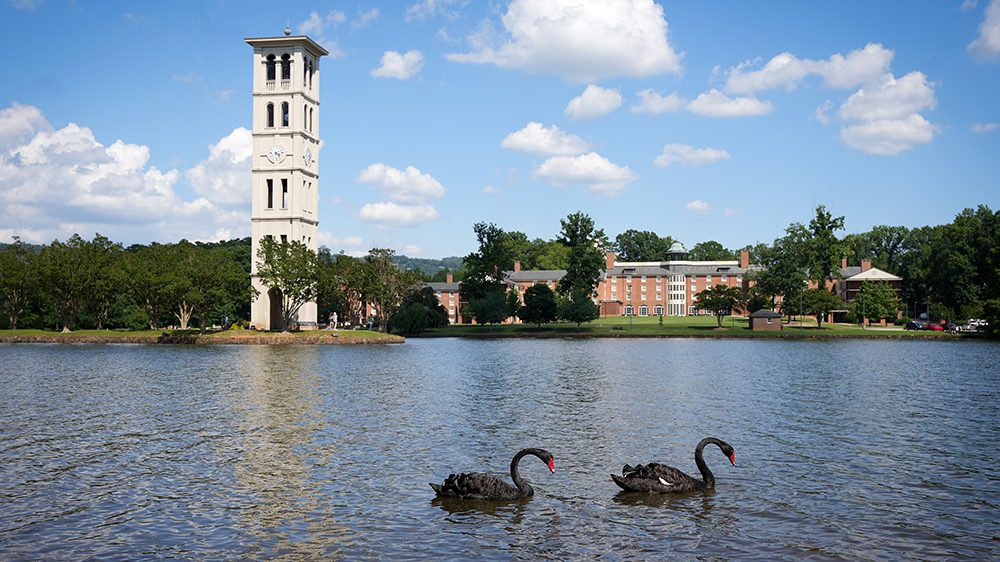
When Clearly Furman: The Campaign for our Third Century launched a year ago, Furman’s four institutes represented one the of six initiatives in the campaign.
Few liberal arts and sciences universities have one institute, much less four. The institute concept started at Furman in 1999 with the creation of The Riley Institute, named for former South Carolina Governor Richard W. Riley, a 1954 graduate of Furman and former Secretary of Education in the Clinton Administration. The Riley Institute, The Shi Institute for Sustainable Communities, The Hill Institute for Innovation and Entrepreneurship and The Institute for the Advancement of Community Health (IACH) create unique opportunities for students, faculty and staff, that extend far beyond campus.
“Furman’s four Institutes provide our students with exceptional and unusual opportunities to apply what they learn in the classroom to help address problems that our communities face,” said Beth Pontari, provost and vice president for Academic Affairs. “Through the Institutes, Furman students are connected with community partners and residents to engage in research and outreach projects that extend interdisciplinary learning and skill building.”
Each institute has a goal to raise $10 million endowments to be self-sustaining and contribute to the overall student experience. To date, $23 million has been raised toward a goal of $40 for all four institutes.
Meet the executive directors and learn more about the institutes on June 12 at the launch of Clearly Furman in Columbia, South Carolina.
Below are brief looks into each institute, starting with a Q and A with the newest institute leader, Kerry Sease, director of IACH.
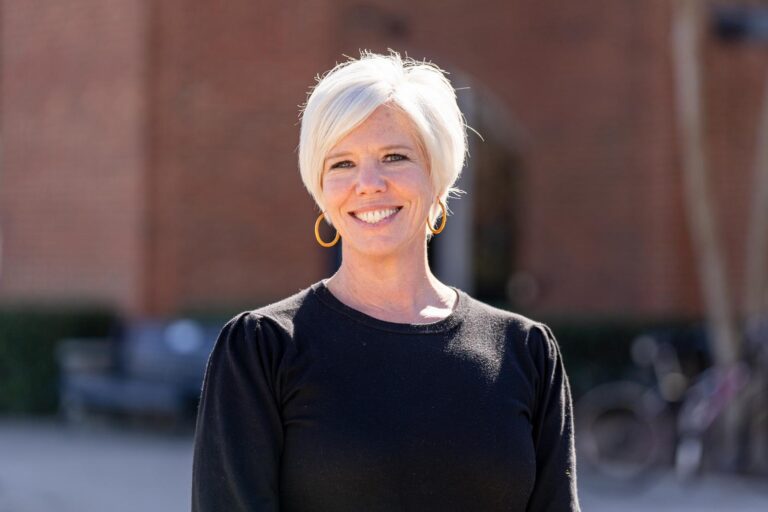
Kerry Sease
What attracted you to join Furman?
Having worked in Greenville for most of my career, Furman has always been a partner institution with much of my work, either through providing direct care at the student health center or collaborating with faculty and the IACH team on research projects. Being around intellectually curious colleagues and students along with the opportunity to work in a different capacity to advance community health is what excites me about being part of the Furman family.
What is your vision for IACH?
I believe in the power of communities to drive positive change and I want our community to think of IACH as the trusted collaborative partner and source of expertise when it comes to understanding and addressing community health issues.
What made you switch to higher education after a prominent career in healthcare?
I love the one-on-one interactions of being a healthcare provider; it is a privilege to do so! Over the course of my career, I have recognized the importance of working with community to create health and address the social drivers of health. The opportunity to do this work within the framework of the Institute for the Advancement of Community Health and influence the collective wellness of the community, while supporting the education of the next generation of healthcare providers in their understanding of community health, was the perfect opportunity for this next phase in my academic career.
What is one initiative you’d like to highlight?
The IACH is currently involved in a strategic planning process and we are actively working on strategies to enhance partnerships on and off campus to strengthen our commitment to advancing community health.
What is a fun fact that you want everyone to know about IACH?
Our team worked with over 270 students from 22 different majors and minors to connect them to experiences within community health.
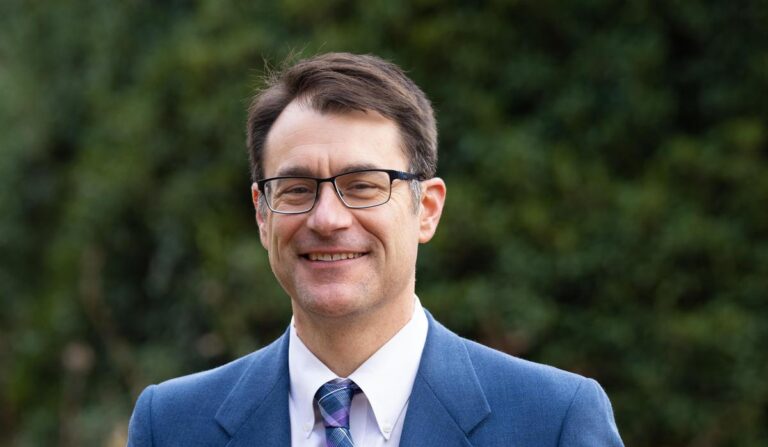
Andrew Predmore.
In 2008, Furman launched an academic hub to promote interdisciplinary research and teaching in support of sustainability on campus and in the greater community. Upon the retirement of then-president David Shi ’73 in 2010, the Board of Trustees voted unanimously to christen the David E. Shi Center for Sustainability in recognition of his leadership. It relaunched in 2020 as the Shi Institute for Sustainable Communities.
Led by executive director Andrew Predmore, the Shi Institute promotes sustainable human flourishing through education, research and leadership, and connects campus and community around developing sustainable communities.
The Shi Institute’s Sustainability Leadership Initiative just graduated its third cohort of fellows this month. The program, a partnership with non-profit Sustain SC, creates a cross-sector network of sustainability leaders poised to make a positive difference statewide. The Shi institute is working closely with Sustain SC this summer to retool the program and ensure that it creates new student and faculty connections with important sustainability work across South Carolina.
What is a fun fact/stat that you want everyone to know?
The Shi Institute also manages the Furman Farm, which grows and sells a lot of food, and sells a lot of compost made from food waste. Proceeds support the educational mission of the Farm and demonstrate how a closed-loop sustainable agriculture system can work. This past summer, fellows harvested 4,145 pounds of food, providing Furman’s Dining Hall with 29 different plant varieties. So far this year, students have volunteered 400 hours of their time to support work at the farm and have harvested 27 different crops, from apple mint to zucchini.
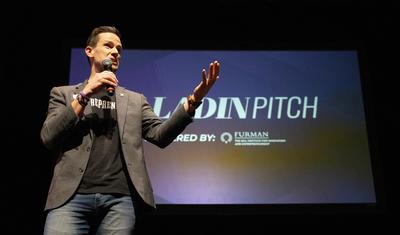
Bryan Davis.
In October 2021, Robert ’83 and Margaret ’83 Hill saw the opportunity to invest in their beloved alma mater and in students’ futures with a generous gift to an institute that launched just three years before. Now led by executive director Bryan Davis, the Hill Institute runs many popular programs that enrich students and the community, and brings the two groups together.
One of the Hill Institute’s signature initiatives is GVL Starts, a bi-annual startup accelerator for first-time founders of all types. The program has been nominated nationally for “Excellence in New Venture Creation” by the Global Consortium of Entrepreneurship Centers, noted for its diversity, breadth of community partners, and rate of founder success. The program:
- Serves 50+ new founders, students and community members, annually
- Sees 600+ people attend demo day each year
- More than half of the participants are women, and nearly half are minorities
- Has 36 community partners and sponsoring organizations
- Boasts $2.3 million in new revenue or follow-on capital raised by program grads since 2021
What is a fun fact/stat that you want everyone to know?
For every hour of community programing Hill delivers, we have:
- 1 attendees
- 94 students connected/employed in the local business community
- 77 new ventures launched or meaningfully accelerated
- $17,037 of new investments or revenue generated by founders we’re supporting
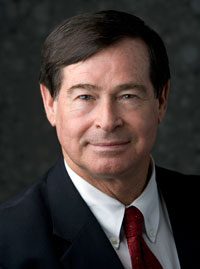
Don Gordon.
The institute that started it all at Furman, the Riley Institute, led by executive director Don Gordon, has statewide impact and influence, and success that run deep, from informing public education policy to mentoring students who serve as Riley Fellows.
Riley’s Diversity Leaders Initiative, a professional development opportunity that prepares leaders for an increasingly diverse workforce and state, now has nearly 2,800 graduates, including U.S. Senator Tim Scott, SCETV President and CEO Adrienne Fairwell and Spinx Founder Stewart Spinks. The program has resulted in 340 community action capstone projects, many of which have become programmatic mainstays at organizations throughout South Carolina or have spun off into independent nonprofits, such as Momentum Bike Clubs and the Community Remembrance Project of Greenville County.
What is a fun fact/stat that you want everyone to know?
To date, 399 Furman students on named scholarships have participated in the immersive Advantage Scholars summer program.